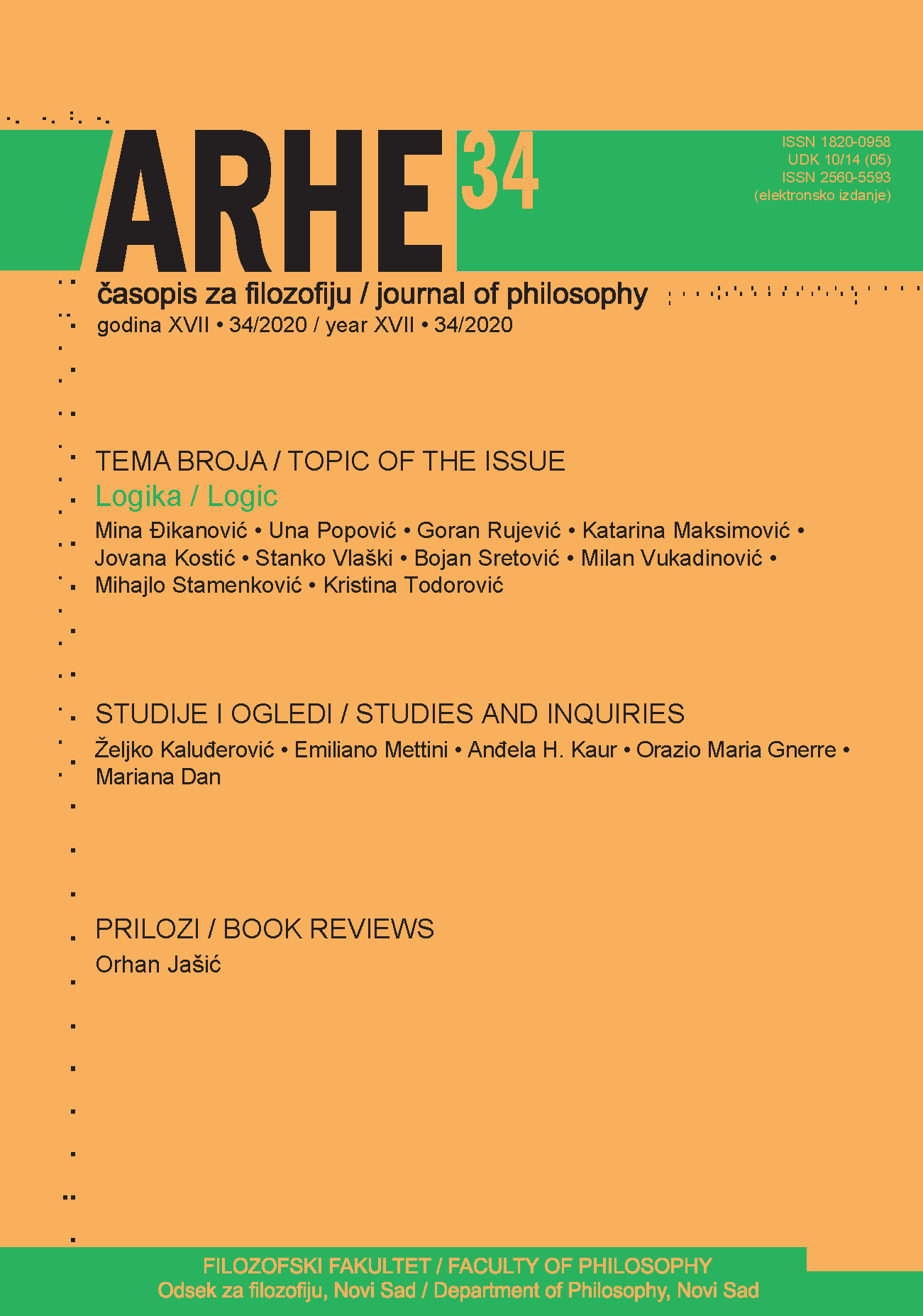Mesto spekulativne gramatike u ranoj Hajdegerovoj filozofiji
The Place of Grammatica Speculativa in the Early Heidegger’s Philosophy
Author(s): Bojan SretovićSubject(s): Metaphysics, Logic, Contemporary Philosophy, Philosophy of Language, Phenomenology, Ontology
Published by: Филозофски факултет, Универзитет у Новом Саду
Keywords: Heidegger;Grammatica speculativa;Husserl;Lask;logic;
Summary/Abstract: Heidegger’s often neglected early work on logic bears traces of what would become his later philosophy’s turn to language. Following Husserl’s claim in “Logical Investigations“ that the existence of a priori laws which determine the possible forms of meaning speaks to the old idea of a universal grammar, Heidegger offered a phenomenological reading of Duns Scotus’ De modis significandi. In addition to phenomenology as the dominant strain, Heidegger in his habilitation work attempted to bring together neo-Scholasticism, neo-Kantism and the philosophy of life. The neo-Kantian preoccupation with the problem of fringe phenomena, such as the impersonal sentence, the question and negative judgment, was of particular significance for Heidegger. While Husserl’s idea of pure grammar took precedent over Lask’s metagrammatical theory of predication, Lask’s presence in Heidegger’s early work was immense. His examination of the role of reflexive categories drew Heidegger’s attention to the hidden structures in living language upon which philosophical discourse must draw.
Journal: Arhe
- Issue Year: 2020
- Issue No: 34
- Page Range: 131-157
- Page Count: 27
- Language: Serbian

